Producer Highlight-
This post was contributed By Sadie Neuman and Gabe Ericksen.
On Sunday, October 27, the Restoravore crew gathered for a special visit to Rockie Hill Bison Farm in Winona, MN, hosted by farm owners Dave and Gail Griffin. It was one of the first cool, crisp, sunny days of Fall—perfect weather for learning about bison and life on the farm atop the scenic bluffs.
Our visit began in Dave and Gail’s kitchen, where they shared their remarkable journey to becoming bison farmers. The couple purchased their farm in 1990, initially raising dairy bulls for Dave’s father while maintaining full-time jobs in town. Dave, who ran an excavating company, was encouraged by a friend, who had won a herd in a card game, to add bison to their farm. Soon after (1992) much to Gail’s surprise, Dave had bought three bison. That spontaneous acquisition of three animals soon grew into a quite serious enterprise. Gail, then working as a dietitian, juggled her job at Winona Health and managing farm duties (often on her lunch breaks). Her deep-rooted connection to ranching goes back to her childhood in Montana, where her family’s ranch bordered Yellowstone National Park. She fondly recalled watching bison roam the mountains with her father, a memory tinged with a wish that he could have seen their own bison herd in Minnesota.
Gail and Dave explain that they raise Bison bison bison, the scientifically accurate name for what Americans often call buffalo – though true buffalo only live in Asia and Africa. The name confusion dates back to early French trappers, who referred to the unfamiliar animal as “les boeufs,” meaning oxen, which eventually became “buffalo.” Gail makes the case that, today, both the names Bison and Buffalo are appropriate in context.
Over the years, caring for bison has required constant learning. Gail expressed gratitude for the support and resources provided by the national and international bison associations (within which she has held leadership positions), as each year brings new lessons. Gail’s expertise as a dietitian was also valuable, giving her a keen observational sense of animal health and nutrition.
This recent Fall marked the Griffin’s 32nd roundup, a critical time for the herd as they prepare for their once-a-year scheduled veterinary visit. The unseasonably warm temperatures this season—over 70°F—increased stress on the bison, who had already begun growing their thick winter coats. Calves are particularly vulnerable to heat-stress during these conditions. Gail and Dave always plan on doing whatever they can to minimize animal stress through the roundup process.
During our visit, Gail also shared some fascinating insights about bison anatomy. Bison sometimes lose their horn caps, which are protective sheaths covering the cream-colored, vesicle-filled bone horn underneath. Bison horns function as built-in cooling systems, pumping hot blood through their horns like an automotive radiator for temperature regulation. Dehorning, though it occurs at a few farms and ranches, leaves bison without essential tools for cooling down and digging through snow for food in winter. Gail emphasized that Rockie Hill Bison Farm does not dehorn their animals, ensuring their herd has what it needs to thrive in spite of changing seasons and weather conditions.
By the Winter of 2020, Gail and Dave were in the early stages of implementing a plan to improve some acres that had previously been enrolled in the Conservation Reserve Program (CRP). Woody vegetation had been encroaching, and the space would no longer meet CRP requirements without some effort. Gabe Ericksen (LandSpirit Design) had been brought in to assist in this process and recommended developing and installing a native seed mix that could someday be used as bison forage or hay. To that end Gabe also enlisted the collaboration of Karin Jokela of NRCS/Xerces, familiar with seed mix development and with an expert knowledge of pollinator habitat. Back-and-forth communications about ratios of grasses to wildflowers, species characteristics, potential toxicities, protein values, and benefits to pollinators were all part of the process.
The 20.36 acres slated for renewal had already been treated once with herbicide (for site preparation) in Fall of 2020, and another round was performed in the Spring of 2021 after green-up. Shortly after that (on April 22), when the treated vegetation turned brown and dried up, Gabe brought a crew out and performed a prescribed burn to remove the dead thatch (further preparing the ground). Then, on May 18-22, Dave and Gabe, Dave driving one of his tractors and Gabe pouring seed into the Truax Native Seed Drill (borrowed from the local Soil & Water Conservation District) planted the acres into the newly designed native rangeland mix. The final mix included 13 species of Graminoids (grasses and sedges), and 44 species of Forbs (wildflowers), a recipe for biodiversity! Although the CRP program doesn’t currently allow landowners to hay or graze enrolled property, someday, when the current CRP contract expires, these acres may become incredible native pasture and hay land for the Griffin herd.
Now (back in October 2024) on tour of the farm, we were able to see the real fruits of this work. After 3 years of growth (arguably only two years for many of the wildflower species) the CRP acreage is already robust, and filled with lush grasses and showy wildflowers. Gail continues to add to her species diversity checklist and explains that the pollinator presence on the farm is far beyond anything they have ever seen before.
Griffin’s Rockie Hill Bison Farm is a testament to stewardship, adaptation and the benefits of prioritizing conservation. As we wrapped up our visit, we left inspired by Dave and Gail’s dedication to sustainable farming, prairie restoration and the deep connection they’ve cultivated with their herd. Their journey reminds us of the importance of balance—between tradition and innovation, nature and care, and learning from the past while forging ahead. For the Restoravore crew, it was an unforgettable experience, rich in lessons about bison, conservation and community stewardship.
Please consider supporting your local producers who are giving back to the ecosystems around them, and if you would like to connect with or support Griffin’s Rockie Hill Bison Farm, please contact Gail at (507) 452-8951, or at buffalo@hbci.com .
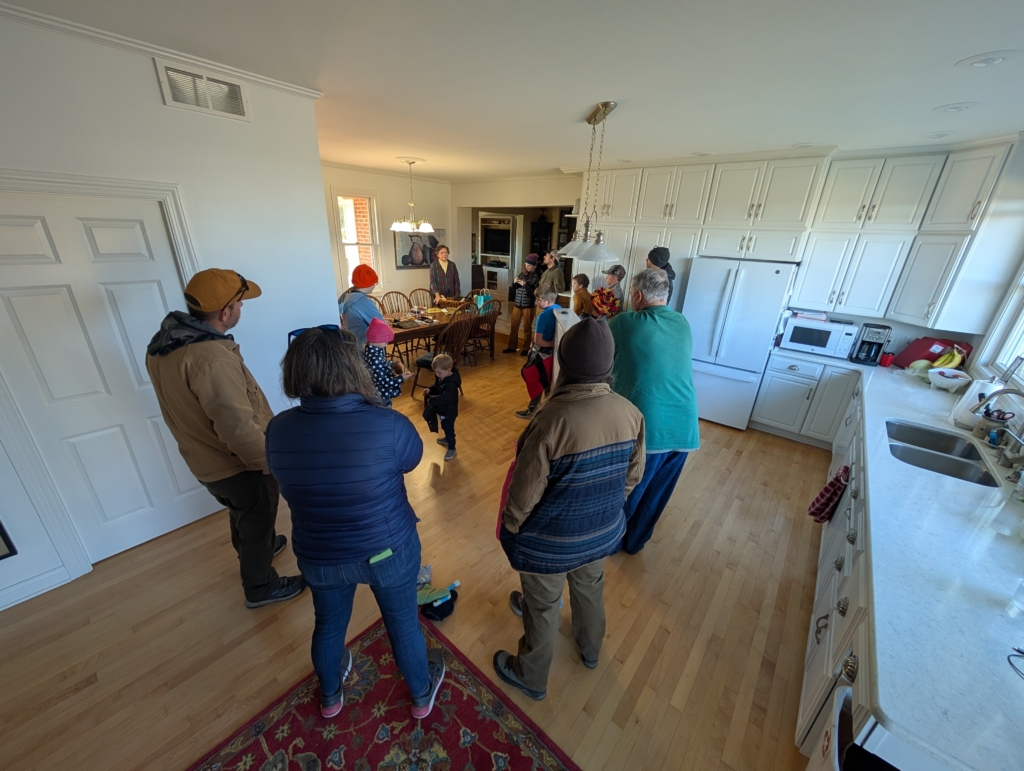
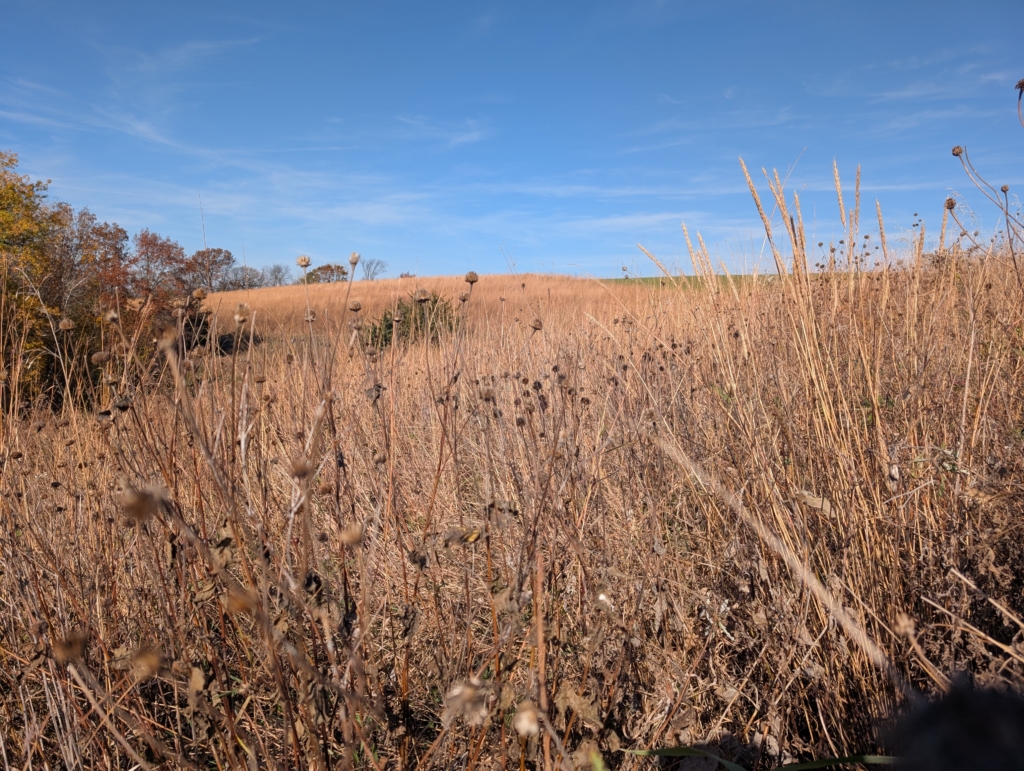
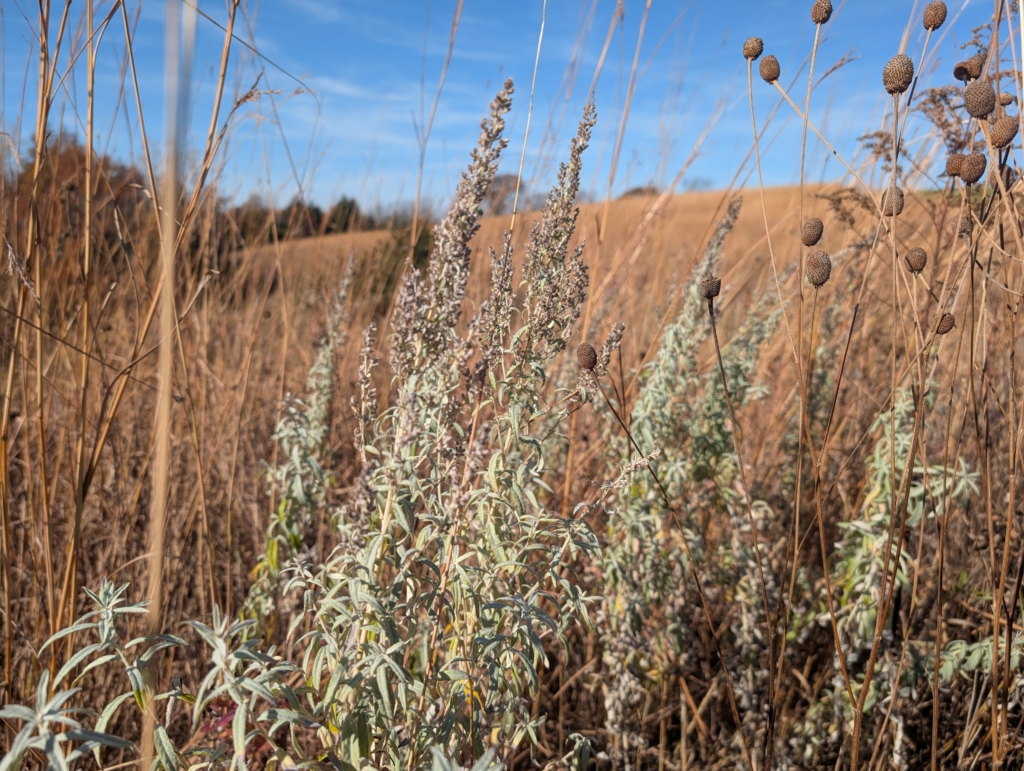
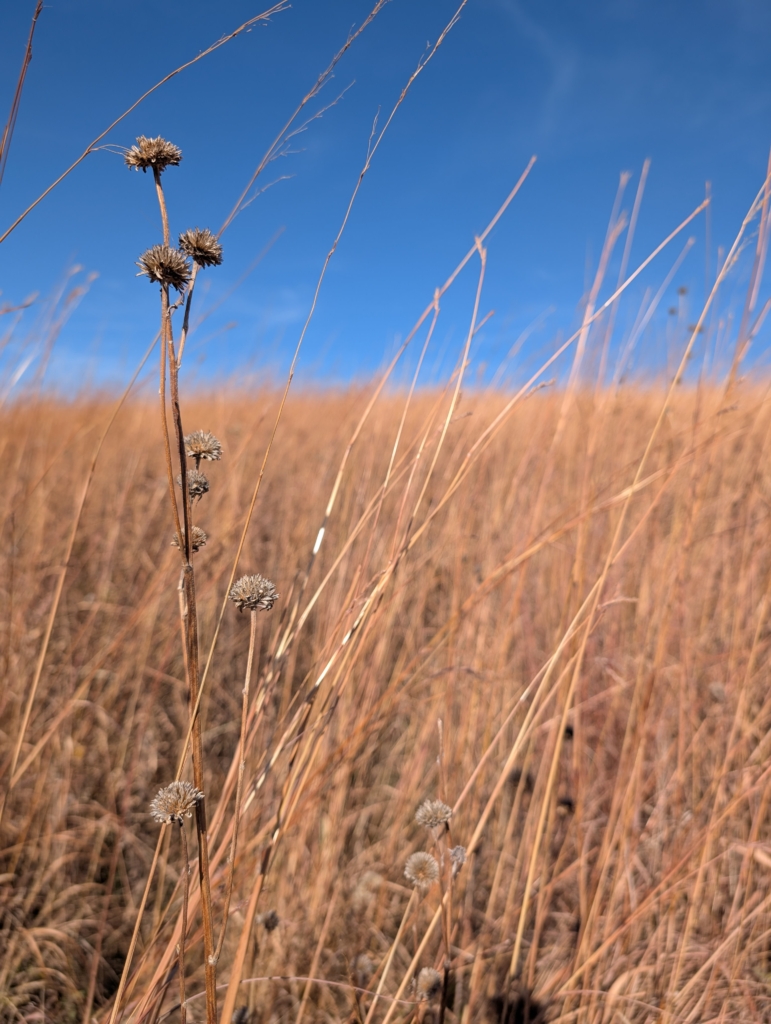
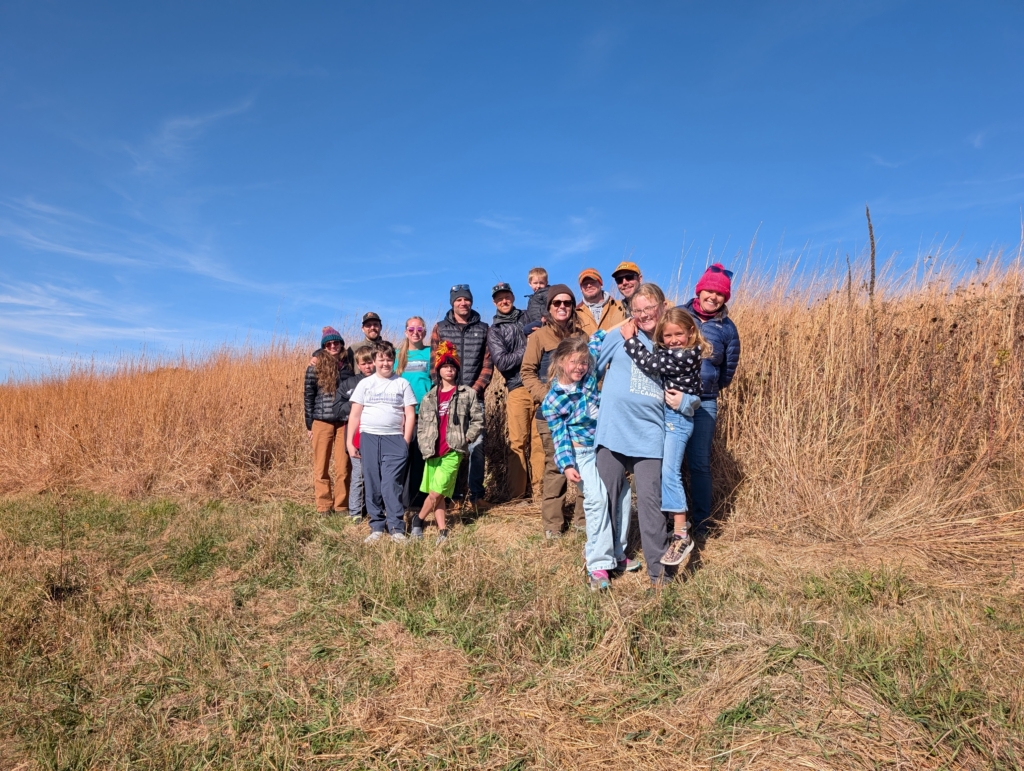
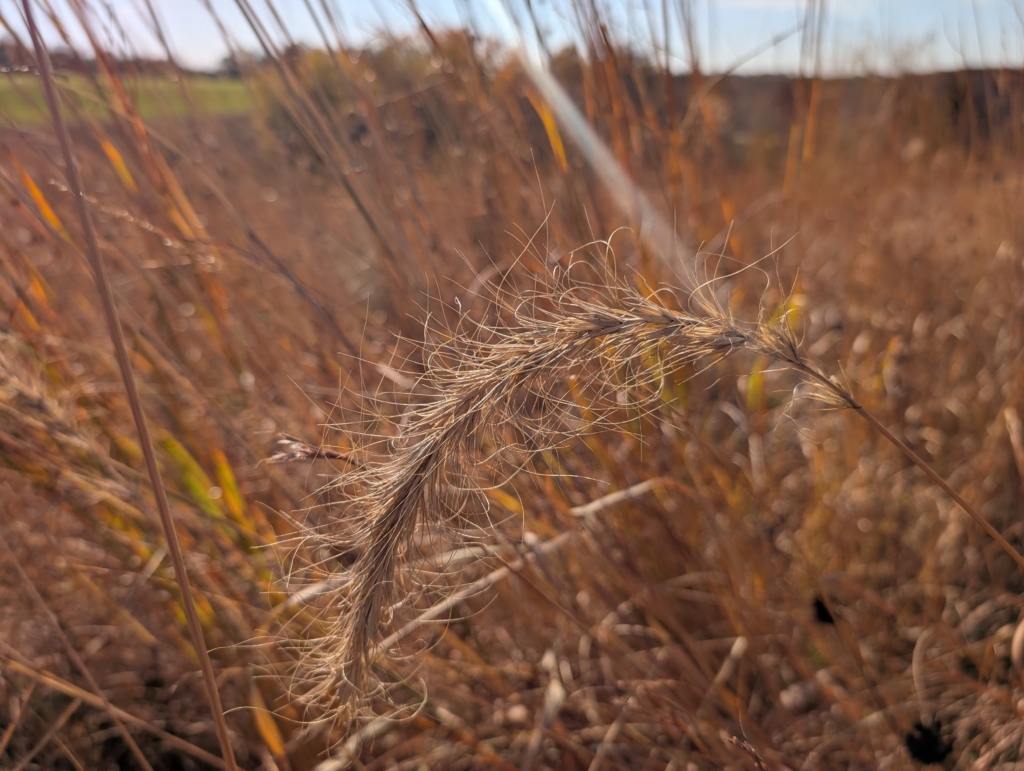
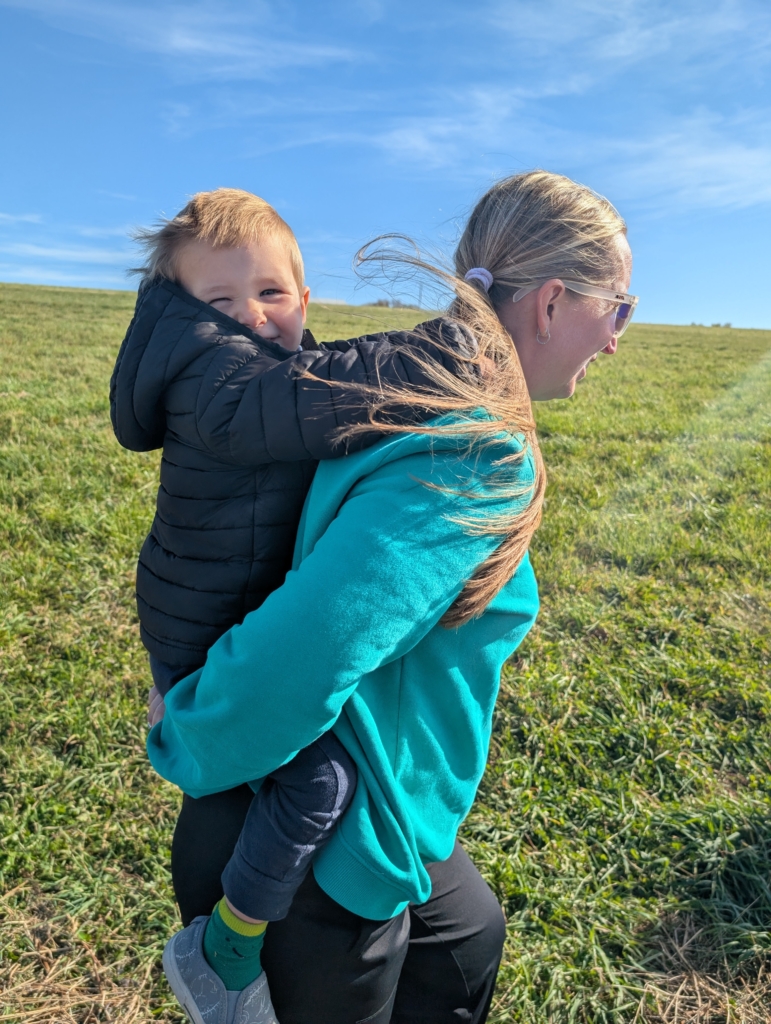

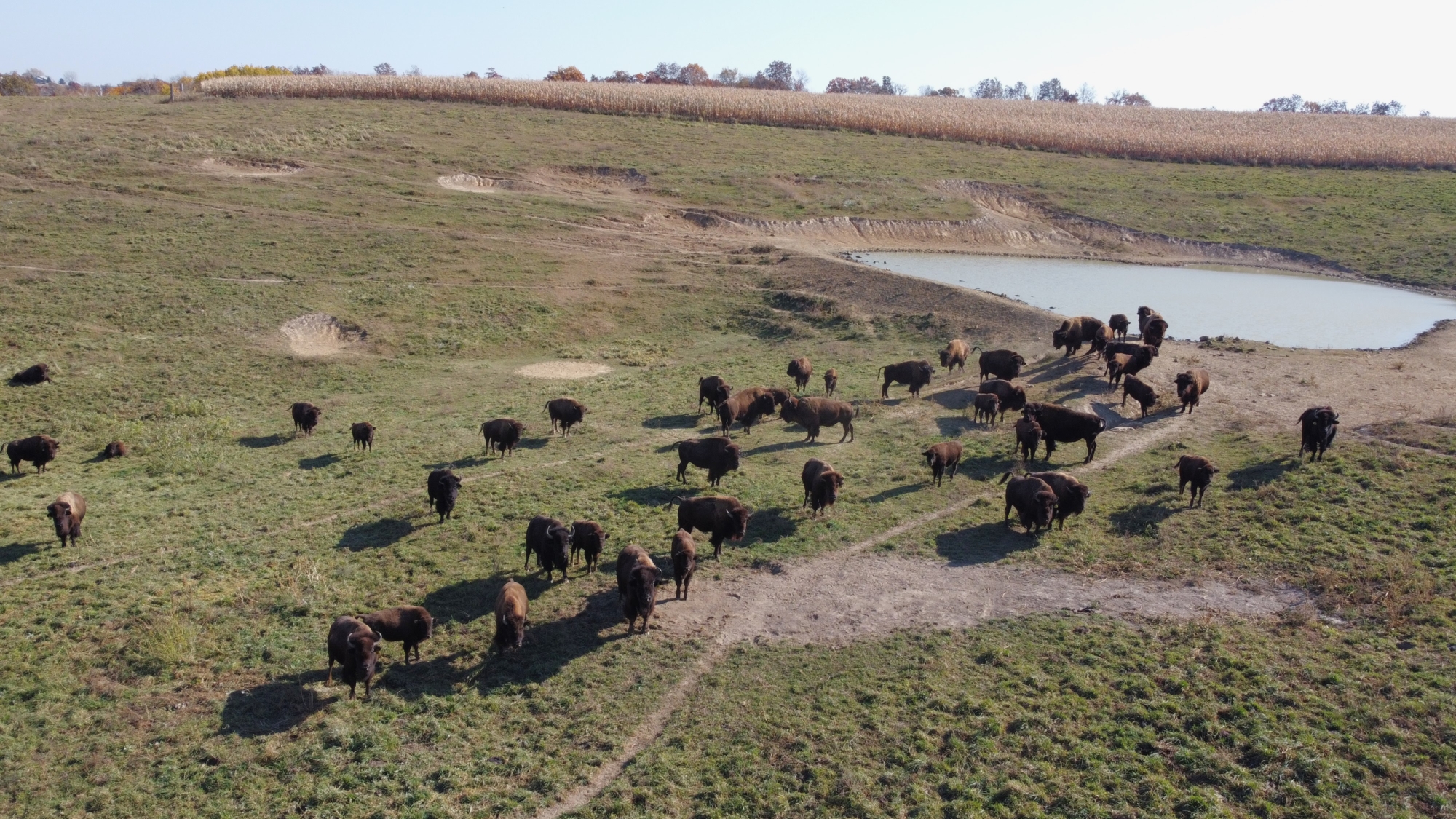
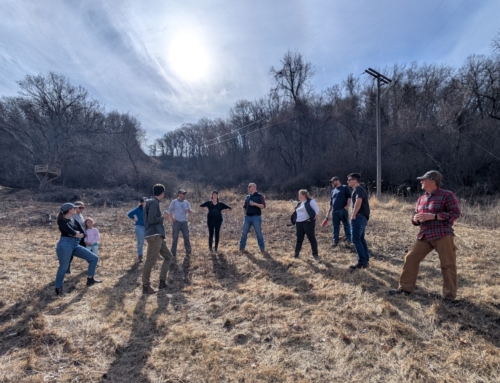
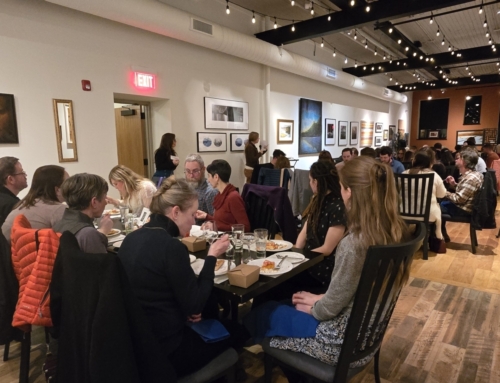
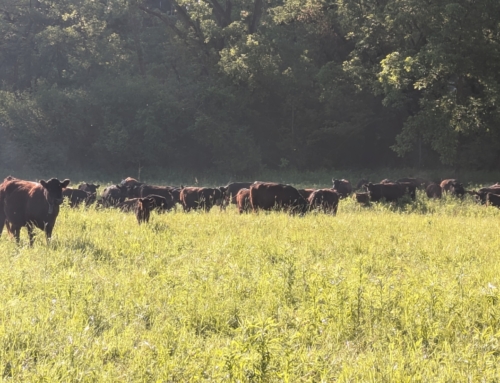
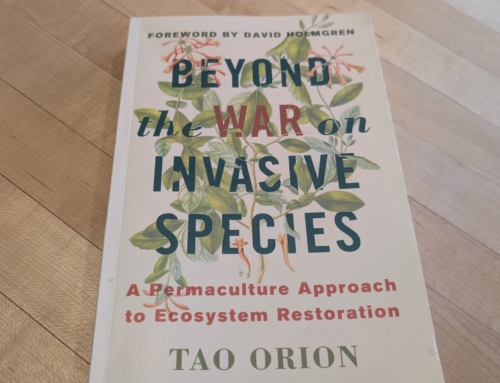
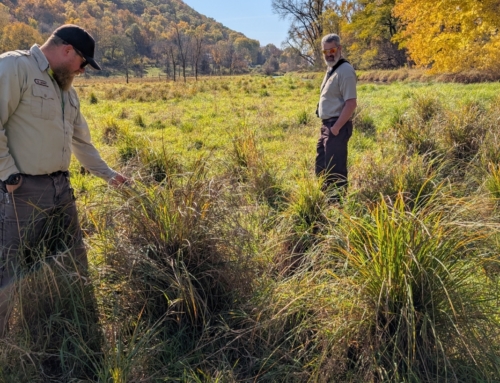
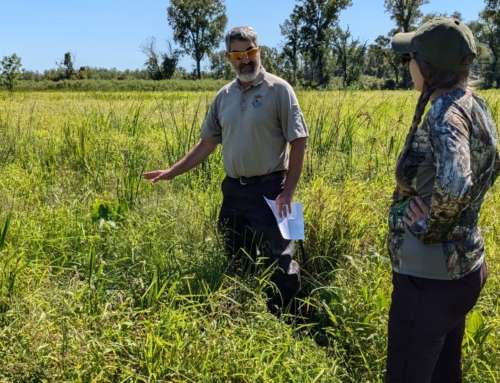
Leave A Comment